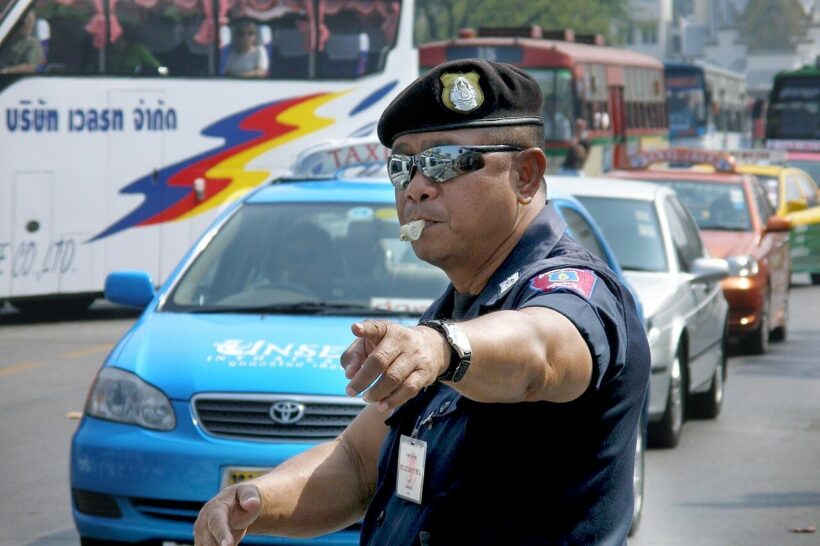Hate traffic tickets? Traffic court may replace them

Not getting a ticket when you get pulled over by police in Thailand sounds nice, but not if it’s replaced with a traffic court date instead. The Cabinet Committee approved a motion yesterday under the Traffic Case Draft Act to create a Traffic Law Enforcement Department which would make being cited for a violation a more formal process that could often include a court appearance.
The planned revision to the Traffic Case Act would create a process that would be separate from normal criminal court cases and allow police officers to give a traffic offender an appointment letter to appear in court and let them decide the penalties levied against them. For this new scheme to be implemented, it would have to be referred to the Office of the Council of State and be reviewed by relevant agencies like the Ministry of Transport, the Royal Thai Police, and the Ministry of Justice Office before it would go to parliament for enactment.
The plan is intended to push drivers in Thailand to be more aware and obedient to the current traffic laws, whose penalties were supposed to increase on Monday but have now been delayed for three months. A government deputy spokeswoman said that the apathy of drivers following traffic laws can harm not just drivers, but their passengers and members of the general public who could be innocent victims in an accident caused by breaking traffic laws.
The new plan would categorize traffic offences into three different groups, each would be handled differently and whether they received a ticket or a court referral. More serious violations will not go to the new traffic court, but directly to the criminal court, with less serious offences sent directly to court, or receiving a court appointment if they don’t pay a ticket.
- GROUP 1
- Violators would be referred to an investigating officer who would set a court appointment for the offender to appear.
- This would apply to those who violate a number of specific offences. Some examples:
- driving above the speed limit
- failing to obey traffic lights
- driving without a driver’s license
- driving while their driver’s license is suspended, revoked, or expired
- GROUP 2
- Violators would be ticketed and fined, but if they refuse to pay the fine, they’ll be given a court appointment instead.
- This would apply to those who violate other offences that fall under the regulations of the Expressway Authority of Thailand, the Highway Act, the Land Transport Act, or the Vehicle Act
- GROUP 3
- Violators would fall under standard criminal procedures, with an investigation under the criminal procedure code and referral to the district court depending on the incident.
- This would apply to the most serious violators not covered in the first two groups like reckless driving that endanger people’s lives or drink driving.
Latest Thailand News
Follow The Thaiger on Google News:
























